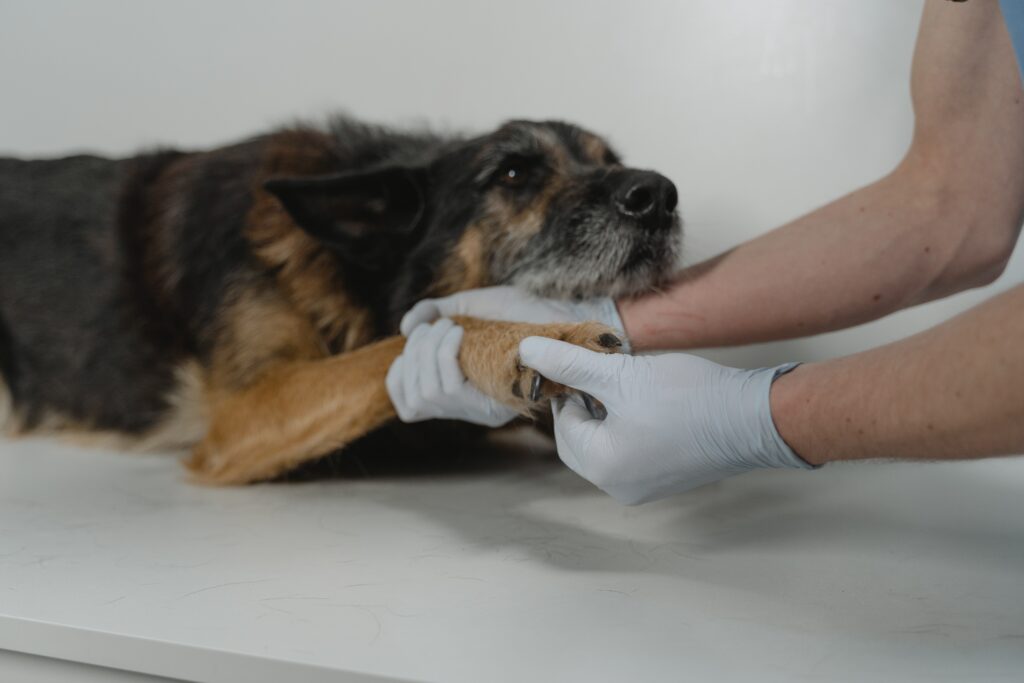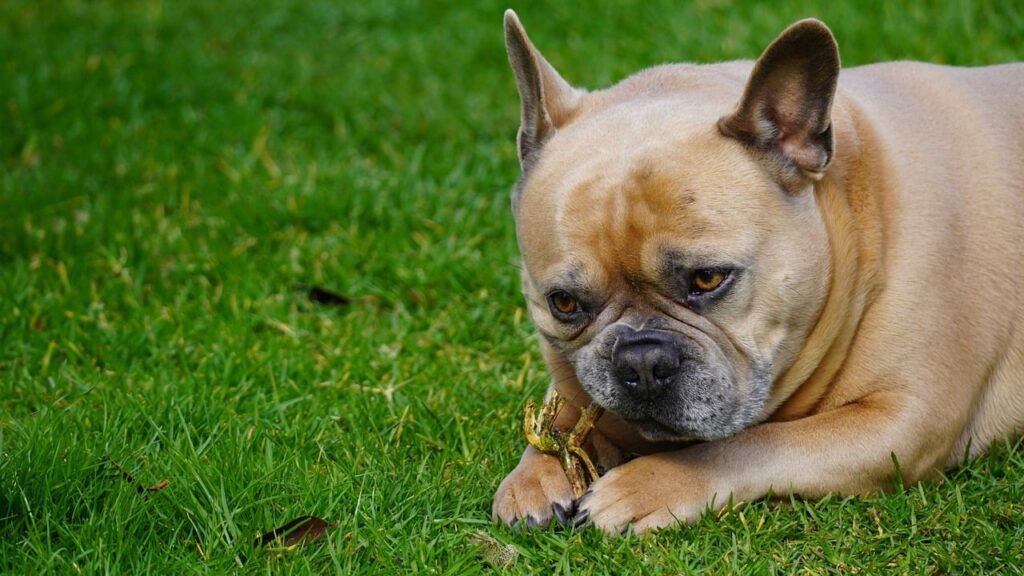As any pet owner will know, it’s not uncommon for dogs to lick or chew on their paws.
While it may seem like a harmless habit, excessive paw licking and chewing can lead to a range of issues, from skin irritations to infections.
So, if you’re concerned about your dog’s paw licking and chewing, it’s important to take action to alleviate it.
Table of Contents
Let’s go over some reasons for persistent paw licking and chewing.
Paw licking and chewing can have numerous underlying causes, ranging from allergies and injuries to boredom, anxiety, stress, or even obsessive-compulsive disorder.
Detecting the root of the problem can be a challenging task, as it may entail a complex process of elimination, consultations with a veterinarian, and experimentation with different strategies.
Allergies
Allergies, for instance, can manifest in a myriad of ways and may necessitate varying treatments, such as dietary changes or medication.
In some instances, dogs may be reacting to environmental triggers, such as pollen or dust mites.
Behavior Problems
Boredom can also be a significant factor, as dogs may resort to self-soothing behaviors when they lack mental stimulation or physical exercise.
Anxiety and stress can have a significant impact on a dog’s behavior, including paw licking and chewing.
Separation anxiety, for example, can cause dogs to engage in destructive behavior, such as excessive barking, chewing, or digging.
Identifying the root of anxiety and implementing a plan to alleviate it, such as crate training or behavior modification techniques, can help reduce these behaviors.
Injuries
Injuries, such as cuts, abrasions, burns, or toenail issues can cause dogs to lick or chew their paws as a way of self-soothing or trying to heal the affected area.

However, the behavior may become compulsive, leading to self-harm and further complications.
Mental Behavior
In some cases, the underlying issue may be linked to a more profound psychological condition, such as obsessive-compulsive disorder, which requires specialized care.
It’s crucial to keep in mind that each dog is unique and may necessitate a personalized approach to addressing their behavior.
Experiments and patience may be necessary to identify the underlying cause and find a solution that works for your furry friend.
As pet owners, we have a responsibility to provide our dogs with the care and attention they require, even when faced with perplexing behavior.
It is imperative to comprehend that taking preventive measures to address paw licking and chewing behavior in dogs is a crucial step in ensuring their overall health and well-being.
How To Stop Dogs From Licking And Chewing Their Paws
There are several ways to help your dog stop licking and chewing their paws. Read on to discover your options.
Medication and Natural Remedies
While certain underlying medical conditions may necessitate the use of medication, it is equally important to consider alternative natural remedies like apple cider vinegar, as well as implementing proper hygiene practices and consistent behavior training and tracking methods to curb this undesirable behavior.
In cases where medication is prescribed by a veterinarian, close monitoring and compliance with dosage guidelines is necessary to ensure that any underlying medical conditions that may be contributing to the behavior are properly addressed.
However, natural remedies like apple cider vinegar can also provide effective relief for dogs with itchy paws, as it has antimicrobial and anti-inflammatory properties that can help reduce inflammation and promote healing.
Hygiene Upkeep
Moreover, consistent hygiene upkeep is also essential in preventing paw licking and chewing, as clean and well-maintained paws are less susceptible to fungal and bacterial infections that can cause discomfort and exacerbate the behavior.
Positive Reinforcement Training Techniques
Additionally, keeping an eye on your dog’s behavior and implementing positive reinforcement training techniques to discourage paw licking and chewing can also help break the cycle of this habit.
Consistent tracking of progress and behavior changes can also provide valuable insights and inform modifications to treatment methods as needed.
Increase your Dog’s Exercise and Playtime
One potential solution is to increase your dog’s exercise and playtime. Just like humans, dogs need physical activity to help reduce anxiety and boredom.
By providing more opportunities for exercise and play, you can help redirect your dog’s attention away from their paws.
Chew Toys
Another option is to provide your dog with a variety of chew toys to satisfy their natural urge to chew. Chew toys can help keep your dog’s mind stimulated and prevent boredom from setting in.
Additionally, you can try offering your dog interactive toys, such as puzzle toys, to help keep their mind engaged.
If you suspect that allergies or pain may be contributing to your dog’s paw licking and chewing, it’s important to consult with your veterinarian.
They can help identify any underlying medical issues and recommend appropriate treatment options.
In some cases, it may be necessary to use deterrents to help stop the behavior. Bitter sprays or bandages can help discourage your dog from licking or chewing on their paws.
However, it’s important to use these products carefully and under the guidance of your veterinarian, as they can cause additional skin irritations if used improperly.
Conclusion
By addressing paw licking and chewing behavior in a holistic manner that combines medication, natural remedies, hygiene upkeep, and positive reinforcement training, dog owners can effectively manage and even eliminate this unwanted behavior, ultimately promoting their dog’s overall health and happiness.


Dennis and Becca, have always shared a passion for man’s best friend. As dog enthusiasts, they put together articles that inform, engage, and captivate fellow dog lovers.